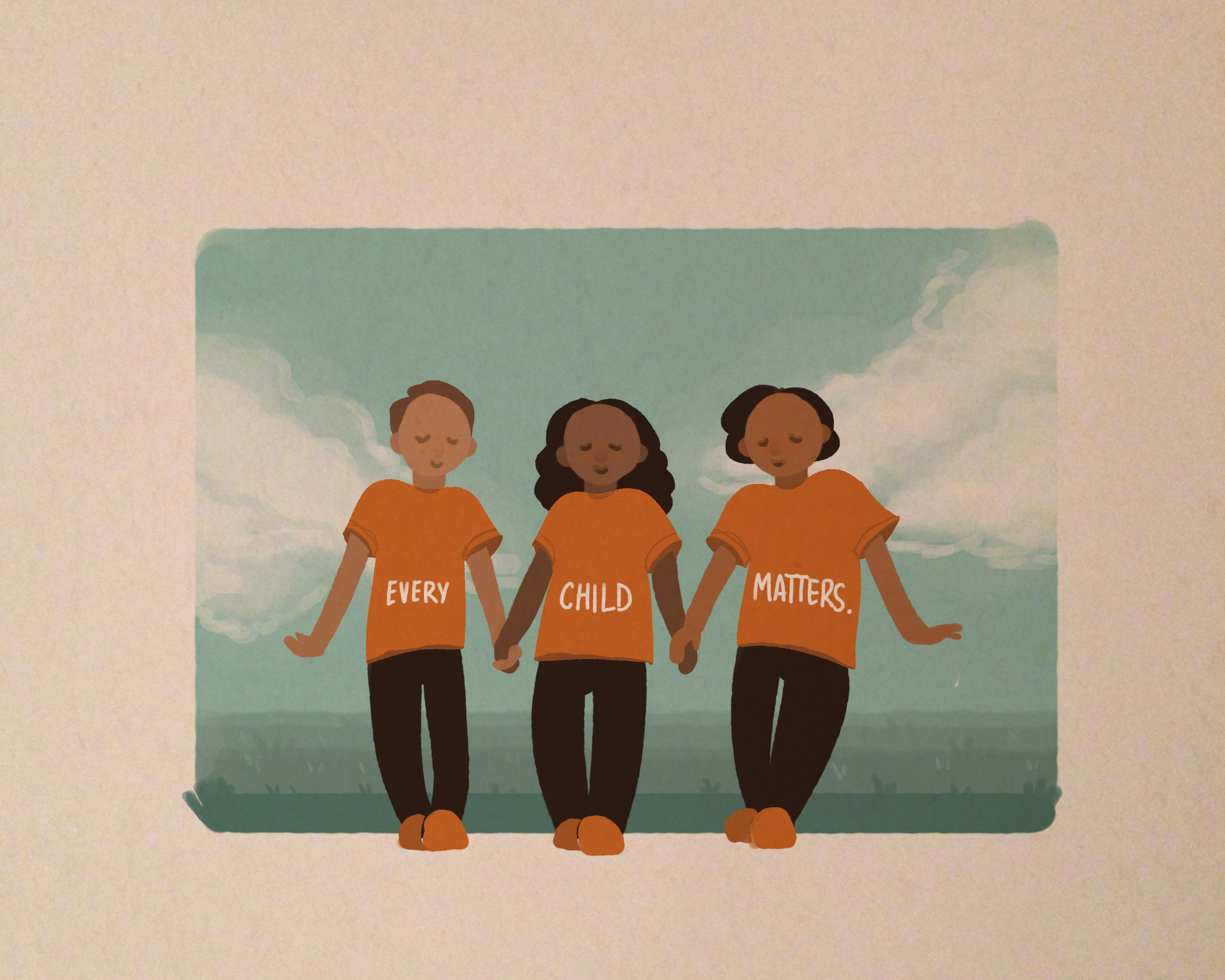Every year, on Sept. 30, many Canadians wear orange in remembrance of the Indigenous children who were victims of the residential school system and to honour the survivors, families and communities that were affected.
At this time of year, thousands of Indigenous children were removed from their homes and forced to attend government-sanctioned residential schools. The purpose of these schools was to assimilate Indigenous youth into the Eurocentric Canadian culture. Physical and sexual abuse were alarmingly common at these institutions and the student death rate was approximately one in 25, though records remain incomplete.
The first residential school opened in Canada in the 19th century but the last school didn’t close its doors until 1996.
That’s almost 200 years of ongoing oppression.
The Orange Shirt Day movement officially began in Williams Lake, B.C. in 2013 to create meaningful discourse about the harmful, continuing effects of residential schools in the spirit of reconciliation. Further, it provides the opportunity for all schools to set a yearly precedent of anti-racism and anti-bullying.
Orange Shirt Day is inspired by the story of Phyllis Webstad. In 1973, six-year-old Webstad received an orange shirt from her grandmother to wear to school. Upon arriving at the residential school, the shirt was taken away from her and she never wore it again.
Many schools in Manitoba organize their own events to commemorate the day, such as assemblies, smudges or visiting former residential school sites. However, due to the pandemic situation, Orange Shirt Day initiatives will look a lot different this year.
The National Film Board of Canada (NFB) has put together a list of films on residential schools to view on its blog. Short films, like Kent Monkman’s Sisters & Brothers, are free to watch while the feature length film We Were Children is available to download or rent for a fee and is purchasable on DVD.
The National Centre for Truth and Reconciliation (NCTR), located at the University of Manitoba, has organized a free online event on Sept. 30, titled Every Child Matters: Reconciliation Through Education. The event provides the opportunity to hear first-hand accounts from residential school survivors and to learn from Elders and Knowledge Keepers.
Though it is geared toward educators and developed for students in Grades 5 to 12, the NCTR invites people of all ages to participate in the event. For those unable to attend the event on Orange Shirt Day itself, the stream will be available for viewing afterward through the NCTR website.
Finally, RisingYouth North is holding a free livestream event called Children are Sacred. The stream is viewable via Facebook Live and will also feature conversations with survivors and Elders.
Other ways to get involved include wearing orange on Sept. 30, sharing Phyllis Webstad’s story, either through YouTube or reading her book, accessing Orange Shirt Day resources and raising awareness about residential schools and their impacts.
For more information about Orange Shirt Day, visit orangeshirtday.org. To learn more about the Every Child Matters: Reconciliation Through Education event and the NCTR, visit nctr.ca. For details about RisingYouth North’s event, visit their Facebook page. To view the films mentioned, visit nfb.ca.




